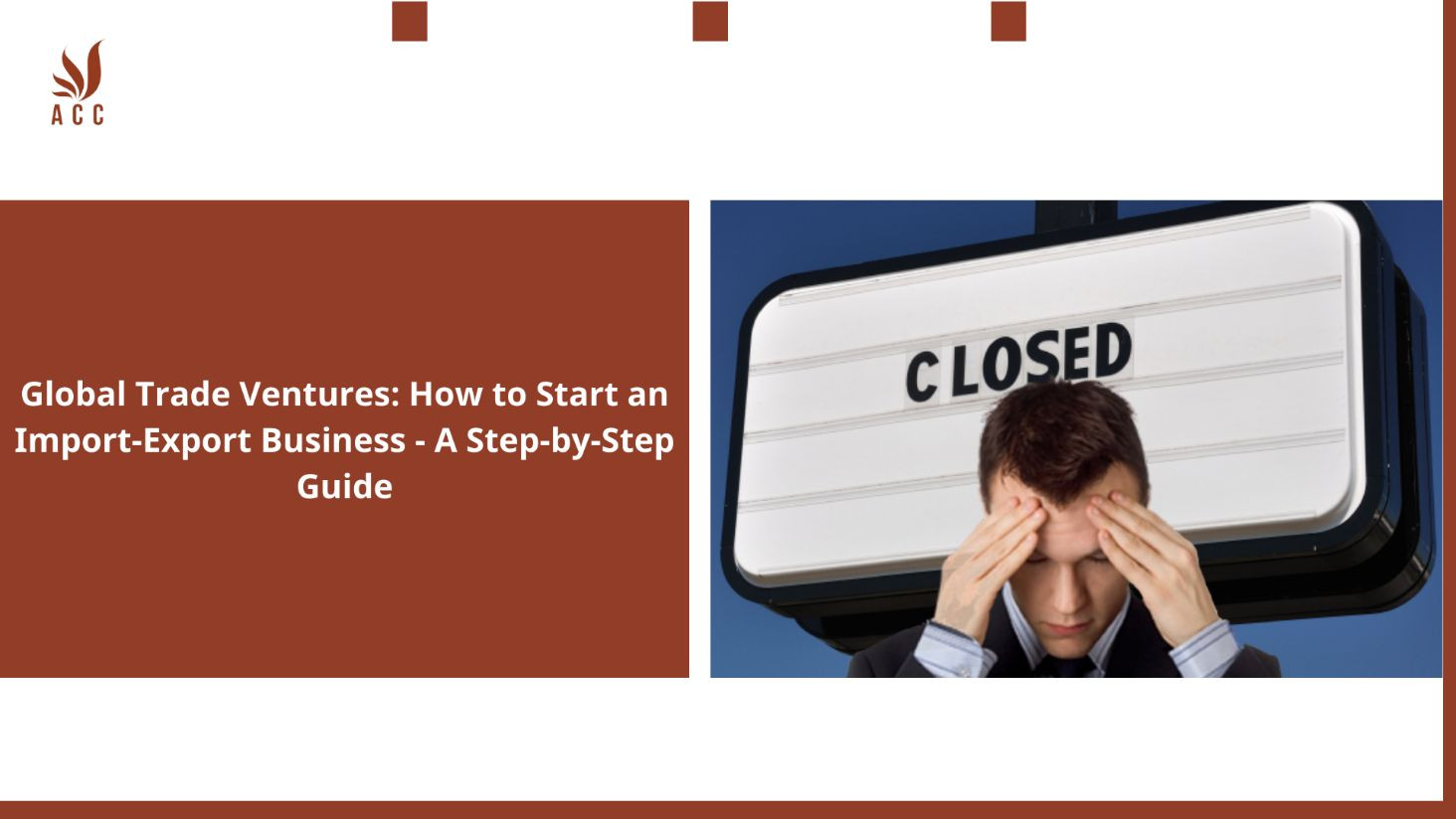Before diving into the import-export business, conduct thorough market research. Identify potential products or industries with demand in your target market. Consider competition, market trends, and regulatory requirements. So, what doess dissolving a limited company mean? ACC Group will address your question.

I. What does it involve to establish an import-export company?
Establishing an import-export company involves a series of steps and considerations to ensure legal compliance, smooth operations, and successful international trade.
II. Starting an Import-Export Business: A Comprehensive Guide
Choose Your Niche
Determine the specific products or industries to focus on. Consider factors like expertise, market demand, profitability, and the availability of suppliers or buyers.
Develop a Business Plan
Create a comprehensive business plan outlining goals, strategies, target market, financial projections, and marketing plans. This roadmap will attract investors and secure financing.
Identify Suppliers or Manufacturers
Research and identify reliable suppliers or manufacturers for the products you plan to import. Consider quality, pricing, reliability, and their ability to meet your requirements.
Build Relationships with Partners
Establish relationships with potential buyers, distributors, or agents. Attend trade shows, join associations, and network to connect with partners who can help distribute or sell your products.
Understand Import-Export Regulations
Familiarize yourself with import-export regulations in your country and target countries. Understand customs procedures, tariffs, licensing, and any restrictions or documentation needed.
Obtain Necessary Licenses and Permits
Determine and obtain licenses or permits required for your business. This includes import/export licenses, trade compliance certifications, or permits for specific product categories.
Establish Logistics and Shipping Arrangements
Set up logistics and shipping arrangements for smooth transportation. Research and select reliable freight forwarders or shipping agents for customs clearance and delivery.
Set Up Financial Systems
Establish financial systems to manage transactions. This includes international payment methods, compliance with foreign exchange regulations, and managing currency fluctuations.
Develop a Marketing Strategy
Create a marketing plan to promote your business. Utilize online platforms, trade directories, social media, and other channels to reach your target audience.
Ensure Legal and Regulatory Compliance
Understand and comply with all legal and regulatory requirements. This includes tax obligations, customs regulations, and adherence to trade agreements.
Build a Professional Network
Cultivate relationships with industry professionals, trade organizations, and government agencies involved in international trade. This network provides valuable insights and opportunities.
Monitor and Adapt
Continuously monitor market trends, customer preferences, and changes in regulations. Adapt strategies and operations to stay competitive and meet evolving business needs.
In conclusion, starting an import-export business requires careful planning, market knowledge, and compliance with legal requirements. Seek guidance from trade consultants, legal professionals, and industry experts for a successful and compliant operation.
Frequently Asked Questions (FAQs)
-
What is the importance of market research in starting an import-export business?
- Market research helps identify potential products, understand competition, and ensures demand in the target market.
-
How crucial is a business plan for an import-export company?
- A business plan is essential as it outlines goals, strategies, and financial projections, serving as a roadmap for the business.
-
Why is building relationships with partners important in international trade?
- Relationships with partners facilitate distribution, sales, and market penetration in the target export market.
-
What licenses and permits are typically required for an import-export business?
- Import/export licenses, trade compliance certifications, and permits specific to certain product categories are often required.
Nội dung bài viết:






Bình luận